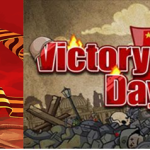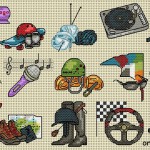April Fool’s Day is the first day in April. The fun of April Fool’s Day is to play silly but harmless jokes on family members, co-workers, and friends. The victim of these pranks is called an April fool.
This custom originated in France. When the French first adopted the Gregorian calendar in 1582, some people continued to use the old calendar and to celebrate New Year’s Day on April 1. These people were called April fools. The custom of playing tricks on this day became popular in France and then spread to many other countries. April Fool’s Day jokes are as ingenious, humorous, or cruel as the people who perform them. Here are some typical pranks:
- Calling the zoo and asking to speak to Mr. Lion.
- Putting salt in the sugar bowl.
- Setting the clock back an hour.
- Saying to a friend, “Oh, my! You have four big holes in your coat… Button-holes.”
In April comes the cuckoo, emblem of simpletons; hence in Scotland the victim is called “cuckoo” or “gowk”, as in the lines: ”In the first day of April, Hunt the gawk another mile”. Hunting the gawk was a fruitless errand; so was hunting for hen’s teeth, for a square circle.
Today April Fool’s jokes are played mostly by children, who enjoy the fun immensely.
silly but harmless jokes — глупые, но безобидные шутки
co-workers— сослуживцы
the victim of these pranks — жертва этих шалостей
to originate — брать начало, происходить
to adopt the Gregorian calendar — принять григорианский календарь
ingenious — бесхитростный, простодушный
to perform — совершать
sugar bowl — сахарница
a hole — дыра
button-holes — петли для пуговиц
cuckoo — кукушка
emblem of simpletons — символ простаков
hence — с тех nop
“gowk” — (диал.) кукушка; дурак; идиот
a fruitless errand — бесполезное занятие
immensely — чрезвычайно





